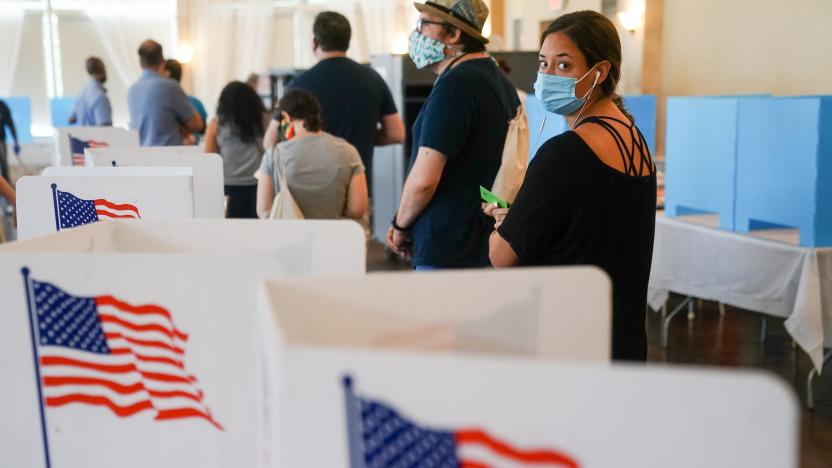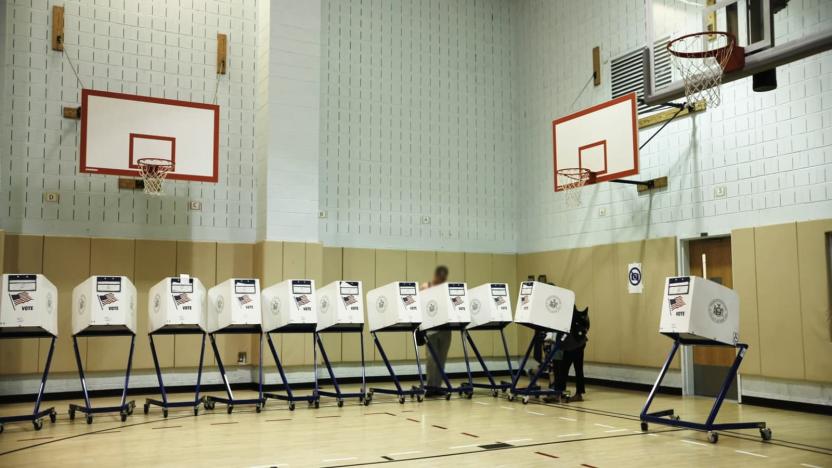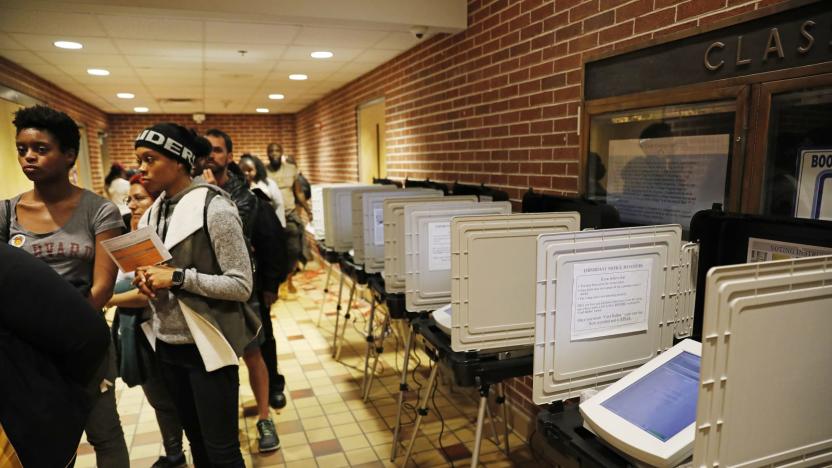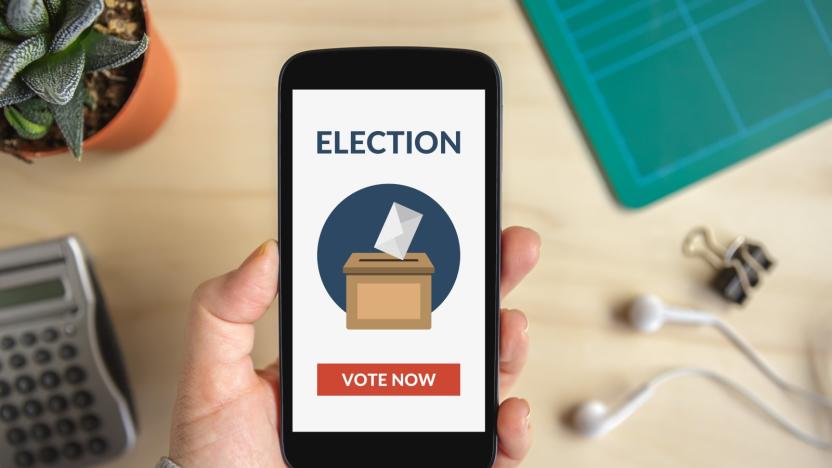electionsecurity
Latest

Many of Georgia's new voting machines aren't working on primary day
Many voters are enduring long waits and some poll locations quickly ran out of provisional ballots.

HBO’s 'Kill Chain' doc highlights the flaws in US election machines
While COVID-19 might be putting just about everything else on hold, we're still marching towards a presidential election later this year. After the high-profile interference of 2016, election security and foreign meddling are still critical issues, but many states still aren't doing enough to ensure the integrity of the process. A documentary premiering tonight on HBO proves a sobering reminder of the fragility of America's voting infrastructure.

Judge orders Georgia to ditch 'vulnerable' voting machines by 2020
A federal judge has ordered Georgia to stop using its old, "vulnerable" paperless voting machines by next year. US District Court Judge Amy Totenberg will allow the state to use the machines for special and municipal elections in November, accepting an argument that it would be too disruptive to switch to paper ballots, but that'll be the last time they're used.

West Virginia will try mobile voting for troops serving abroad
Despite our skepticism of applying tech to the electoral process, CNN reports that after limited tests earlier this year (PDF), West Virginia is planning to roll out mobile voting for its midterm elections in November. Availability will be limited "largely" to troops serving abroad as an alternative to mailed absentee ballots, and individual counties can decide whether or not to participate. The plan is to use software from Voatz (the z, presumably, keeps it fresh), a startup that has received about $2.4 million in funding so far. Because it's 2018, Voatz naturally touts its use of blockchain technology (as well as registration based on government ID and a self-shot video for facial recognition, plus an additional layer of biometric security with either another selfie or thumbprint) to anonymously tally and verify each submitted ballot.

